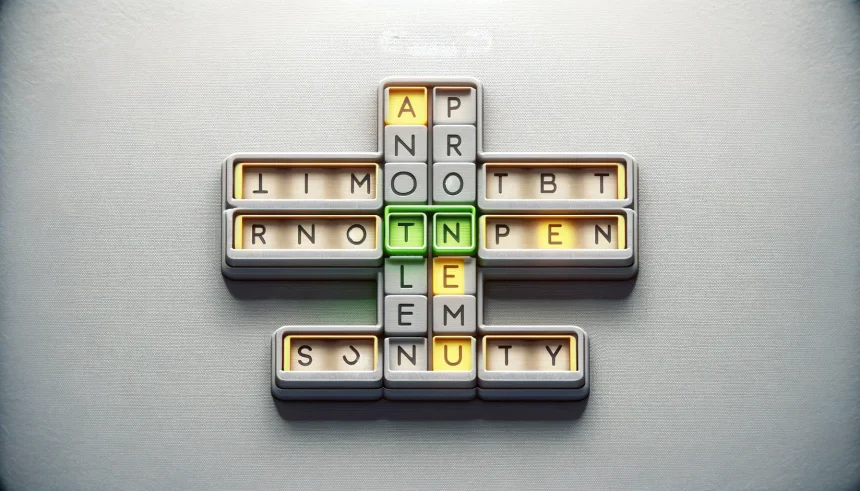On June 9, the daily Wordle puzzle presented players worldwide with a fresh challenge, as individuals worked to unearth the five-letter word of the day. With routine strategies and new guessing techniques, players attempted to optimize their opening moves and efficiently narrow down the correct answer. The anticipation around daily Wordle puzzles remains high, not just for enthusiasts seeking to stretch their language skills, but also for casual players searching for a quick engaging activity. As Wordle solidifies its place in online culture, discussions regarding strategy and optimal solving approaches continue to thrive across online communities.
The June 9 puzzle followed a series of varied and sometimes tricky solutions in recent days, as reflected in previous answers such as “LEASE,” “REUSE,” and “ADMIN.” In earlier news coverage, the game’s popularity and simplicity were commonly emphasized, with frequent mentions of user-generated statistics and players sharing their completion streaks. Comparisons with similar word games, and controversy around word difficulty and regional vocabulary, were also regular topics of discussion. Recent Wordle puzzles have continued to keep players guessing, using common and occasionally unexpected words that maintain the game’s high engagement levels.
What Was the June 9 Wordle Solution?
The solution for June 9’s Wordle was “BOARD.” Players were tasked with arriving at this word through a succession of logical guesses and eliminations. A primary clue referenced both its physical meaning and its role in organizational contexts, helping distinguish the answer while still posing a moderate level of difficulty. Absence of double letters was confirmed, influencing participants’ approach to deducing the final answer.
How Did Hints and Strategies Influence Outcomes?
Strategies for solving the daily Wordle often emphasize the importance of an effective first guess, typically a word with a diverse mix of vowels and consonants. Players are encouraged to avoid repeated letters early and to use color-coded feedback from prior guesses to home in on the correct answer. Tips widely shared among the community include making use of the full six attempts, taking breaks for perspective, and leveraging the elimination process to rule out unlikely letter combinations. As one regular player noted,
“Treating the game like a casual newspaper crossword can be a good tactic; that way, you can come back to it later if you’re coming up blank.”
Why Does Wordle Continue to Grow in Popularity?
Since its inception by software engineer Josh Wardle and subsequent acquisition by The New York Times, Wordle has consistently drawn widespread interest. Each daily word introduces an element of suspense and a chance for friendly competition among friends and online communities. The game’s six-guess limit and clear feedback mechanism maintain a balance between accessibility and challenge, drawing in both beginners and seasoned players. Its straightforward interface and portability further contribute to its sustained engagement, as players access it easily via desktop or mobile devices.
Wordle’s sustained relevance can be partly attributed to its consistent structure and the sense of achievement attached to daily play. The sharing of colored grids among users on social media platforms has bolstered participation and created an avenue for collective engagement. These elements contrast with earlier word puzzles, which often lacked such direct social integration and daily freshness. For serious word-game aficionados and casual users alike, Wordle’s format offers a mix of tradition and daily novelty that keeps interest levels high. Monitoring past answers also provides valuable strategic insights, as repeated words remain rare.
Readers looking to improve in Wordle may benefit from rotating their starting words, analyzing repeated letter patterns in previous solutions, and leveraging the elimination strategy built into the game’s core mechanics. As with many logic and word games, consistent practice, attention to feedback, and adoption of proven strategies collectively help sharpen performance. Regular engagement with the game and participation in its vibrant community often enhance the experience, making Wordle more than just a solitary challenge.










